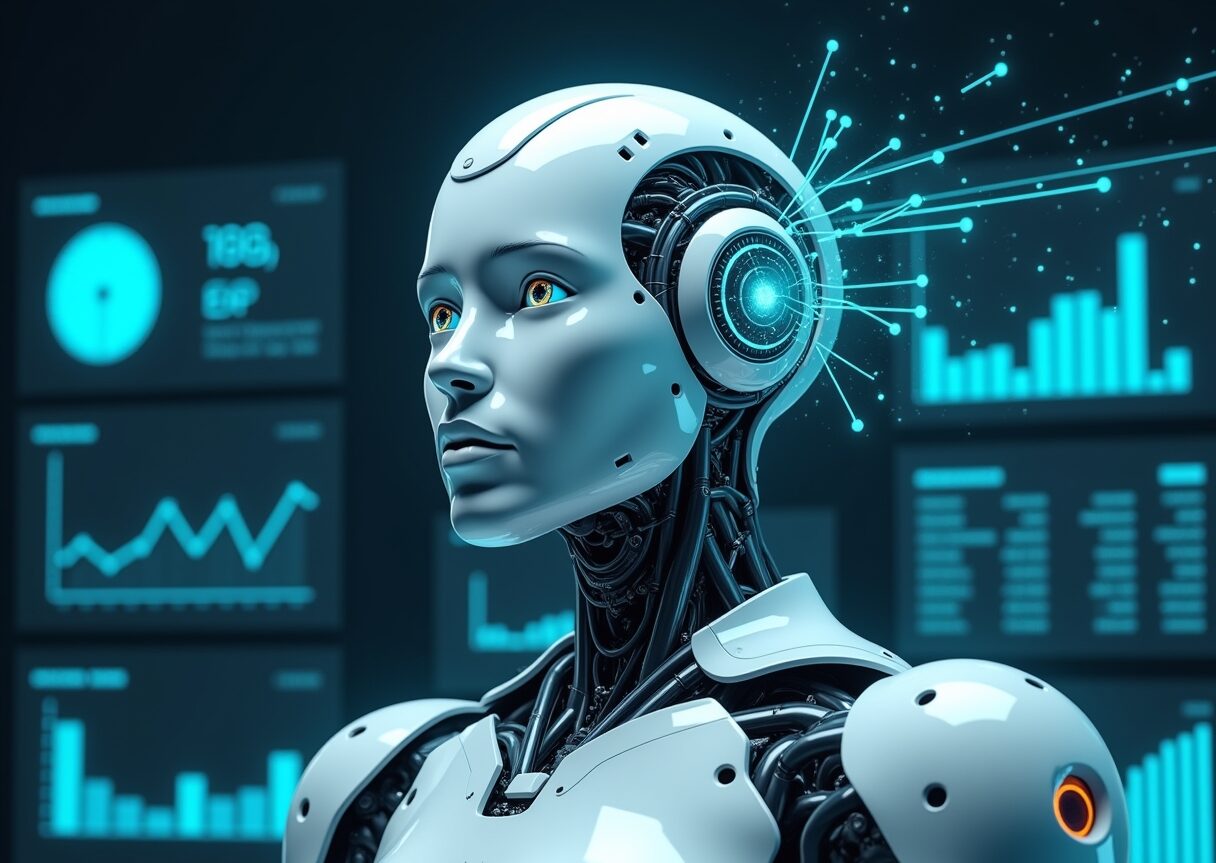Artificial Intelligence in Digital Marketing, Game Development, and Virtual Reality
Artificial Intelligence (AI) is reshaping industries by enabling machines to learn, adapt, and make intelligent decisions. In digital marketing, game development, and virtual reality (VR), AI is no longer a futuristic concept but an active driver of innovation, engagement, and personalization.
1. AI in Digital Marketing
AI has revolutionized how marketers understand and interact with their audiences. Through predictive analytics, chatbots, automated content creation, and programmatic advertising, AI enables businesses to make data-driven decisions and personalize customer experiences at scale.
Key Applications:
- Personalization Engines: AI analyzes user behavior and demographics to serve tailored ads, emails, and website content.
- Customer Segmentation: Machine learning algorithms group audiences based on behavior patterns, increasing targeting accuracy.
- Chatbots and Virtual Assistants: These AI tools offer real-time customer support and lead generation 24/7.
- Predictive Analytics: Anticipating customer actions helps optimize campaigns and improve ROI.
2. AI in Game Development
In gaming, AI enhances player experience, game logic, and world-building. It helps developers create more immersive, dynamic, and intelligent gaming environments.
Key Applications:
- NPC Behavior: AI algorithms enable non-playable characters (NPCs) to react intelligently to player actions, making gameplay more realistic.
- Procedural Content Generation (PCG): AI can auto-generate maps, levels, and storylines, saving development time.
- Adaptive Difficulty: AI adjusts game difficulty in real-time based on player performance, ensuring better engagement.
- Game Testing and QA: Automated testing powered by AI reduces bugs and improves game quality.
3. AI in Virtual Reality (VR)
AI and VR together are enhancing immersion and interactivity in simulated environments. Whether for training, gaming, or virtual social spaces, AI adds realism to VR experiences.
Key Applications:
- Natural Language Processing (NLP): Enables users to interact with virtual environments using voice commands.
- Real-Time Environment Adaptation: AI modifies VR settings based on user behavior, mood, or learning speed.
- Emotion Recognition: Through facial and gesture recognition, AI can interpret emotional cues to enhance user interaction.
- Virtual Companions: AI-driven avatars or guides assist users in navigating complex VR environments.
Benefits Across All Three Sectors
| Benefit | Digital Marketing | Game Development | Virtual Reality |
| Personalization | Targeted content | Player-adaptive systems | Emotion-aware experiences |
| Efficiency | Automated campaigns | Content auto-generation | AI-guided training modules |
| User Engagement | Relevant experiences | Intelligent gameplay | Real-time interaction |
| Innovation | Dynamic ad strategies | Smart NPCs & AI logic | Immersive simulation |
The Future of AI in These Fields
As AI technology matures, we can expect:
- Hyper-personalized marketing and ad experiences
- Games that evolve with the player in real time
- VR simulations indistinguishable from reality
- AI-driven creative tools that accelerate innovation across industries
FAQs About Artificial Intelligence
AI improves targeting, automates repetitive tasks, personalizes content, and provides real-time data analysis for better decision-making.
No. AI enhances creativity and efficiency but still relies on human insight, storytelling, and strategic thinking.
AI powers adaptive environments, intelligent avatars, and real-time feedback loops, creating more engaging and human-like virtual spaces.
Many AI tools are now affordable and scalable, especially cloud-based solutions that offer pay-as-you-go models.
Security depends on implementation. AI must be paired with strong data governance and privacy protocols to protect user information.






